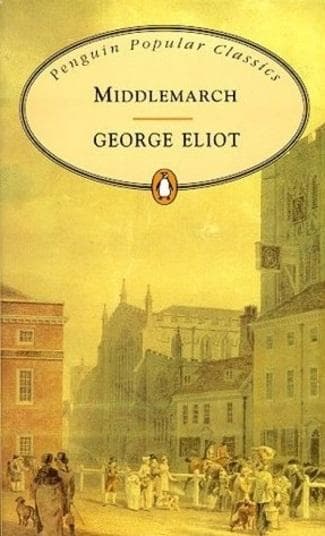
Book Review Summary: Middlemarch
Introduction
Middlemarch, written by George Eliot and published in 1871, is a sprawling novel set in provincial England during the Victorian era. It follows the lives of a diverse cast of characters, each grappling with their own desires, ambitions, and societal expectations. Through their experiences, Eliot creates a rich and textured portrait of life in nineteenth-century England. This article will provide an analysis of common opinions and feelings expressed by readers about Middlemarch.
Analysis of Views
-
Depiction of Society: Many readers praise Eliot's ability to depict society in all its complexity. She skillfully portrays the interplay between individuals and the larger social structures that shape their lives. Readers appreciate how Eliot captures the nuances of class, gender, and social norms, creating a vivid and authentic depiction of life in Middlemarch.
-
Themes of Love and Marriage: The themes of love and marriage are central to the novel. Readers find that Eliot explores these themes with depth and sensitivity. The relationships between Dorothea Brooke and Casaubon, Lydgate and Rosamond Vincy, and Will Ladislaw and Dorothea are particularly compelling. Readers appreciate the exploration of love as both a source of fulfillment and a source of disappointment, as well as the portrayal of marriage as a complex institution with its own set of challenges.
-
Character Development: The characters in Middlemarch are well-developed and multifaceted. Readers appreciate the way Eliot delves into their motivations, desires, and flaws, creating a sense of empathy and understanding. The characters' growth and transformation over the course of the novel are seen as a testament to Eliot's skill as a writer.
-
Social Commentary: Middlemarch is often praised for its social commentary. Readers appreciate how Eliot uses her characters to explore broader societal issues such as education, religion, and politics. The novel provides a nuanced critique of Victorian society, highlighting both its strengths and weaknesses.
-
Writing Style: The writing style in Middlemarch is often described as engaging and immersive. Readers appreciate Eliot's use of descriptive language and her ability to create a sense of atmosphere. The novel's length is seen as both a strength and a challenge, with some readers finding the pacing slow but others appreciating the depth and complexity of the storytelling.
Reasons for Recommendation
-
Depth and Complexity: Readers recommend Middlemarch for its depth and complexity. They appreciate the way Eliot delves into the nuances of human relationships, exploring themes such as love, marriage, ambition, and societal expectations. The novel's exploration of these themes provides readers with a rich and thought-provoking reading experience.
-
Authentic Portrayal of Society: Middlemarch is highly recommended for its authentic portrayal of Victorian society. Readers appreciate the way Eliot captures the social norms, class distinctions, and gender roles of the time. The novel offers a window into a bygone era, providing readers with a deeper understanding of the historical context in which it is set.
-
Skillful Writing: The writing style in Middlemarch is also highly praised by readers. They appreciate Eliot's use of descriptive language, her ability to create atmosphere, and her attention to detail. The novel's immersive quality makes it easy for readers to become fully absorbed in the story and its characters.
-
Themes of Love and Marriage: Readers recommend Middlemarch for its exploration of love and marriage. The novel provides a nuanced portrayal of these themes, delving into the complexities of relationships and the challenges that come with them. The portrayal of love as both a source of fulfillment and a source of disappointment resonates with readers, making it a compelling read.
Reasons for Not Recommendation
-
Length: Some readers find Middlemarch to be too long. The novel's length can be daunting, especially for those who prefer shorter works or have limited reading time. The slow pace of the storytelling may also be seen as a drawback for some readers who prefer more fast-paced narratives.
-
Pacing: While some readers appreciate the depth and complexity of Middlemarch, others find the pacing to be slow. The novel's lengthy chapters can make it challenging to maintain momentum, leading some readers to feel frustrated or disengaged at times.
-
Complexity: The complexity of Middlemarch can also be seen as both a strength and a weakness. While readers appreciate the depth of character development and social commentary, some find it challenging to keep track of all the interconnected storylines and characters. This complexity may make it difficult for some readers to fully engage with the novel or to remember key details from earlier parts of the narrative.
Conclusion
Middlemarch is a highly regarded novel that has captured the imagination of readers for generations. Through its exploration of society, love, marriage, ambition, and societal expectations, Eliot creates a rich and complex portrait of life in Victorian England. While some readers may find the length daunting or the pacing slow, others appreciate the depth and authenticity of the storytelling. Middlemarch is recommended for those who enjoy immersive historical fiction that challenges readers to think deeply about human relationships and societal norms.